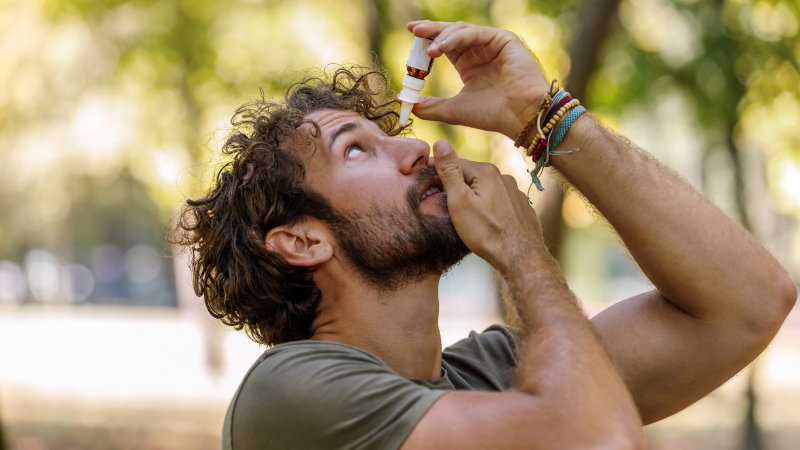What is Dry Eye and What Cause It?
Dry eye, also known as dry eye syndrome, is a condition in which a lack of sufficient lubrication decreases moisture on the surface of the eye due to abnormalities in the mucus that creates tears. It is similar to dry skin; the mucus is unable to control the eye’s moisture level and tears either over- or underproduce. Bailey Weber Wisner’s Dr. Jeffrey McMahon explains dry eye symptoms and treatments and defines when to seek medical care.
What are the Symptoms of Dry Eye?
Common symptoms of dry eye include, unsurprisingly, dryness, itchiness, redness, watery eyes, and blurred vision. You may feel a gritty sensation in your eyes or experience sensitivity to light. Eye fatigue and discomfort can occur, especially while reading or looking at screens for an extended period of time. It is important to note that while symptoms of dry eye can be treated, there is no cure for the condition.
What Factors Contribute to Dry Eye?
There are a number of factors that can make patients more susceptible to dry eye, including age, genetics, and gender. Peri- and post-menopausal women are prone to dry eye, due to hormonal changes and as we age, tear production decreases. Environment can also be a factor; dry or windy climates and a lack of moisture in air-conditioned or heated spaces can cause moisture to evaporate from the eyes. Certain medications, such as antihistamines, decongestants, and antidepressants, can exacerbate dry eye symptoms. And certain medical conditions—diabetes, thyroid disorders, and autoimmune disorders—can increase your risk of dry eye.
How Are Dry Eye Symptoms Treated?
There are a number of options available to treat your dry eye symptoms at home. Cold compresses and over-the-counter drops such as Blink, Systane, or Refresh can help alleviate symptoms. If your dry eye symptoms worsen due to a lack of moisture in the air, using a humidifier to keep indoor humidity levels higher may help. If your symptoms are causing severe pain or if vision impairments worsen, it’s best to seek medical attention from your eye doctor. Unfortunately, there is no cure for dry eye syndrome, but an exam with our specialists at Bailey Weber Wisner can determine if prescription drops such as Xidra or Restatis should be administered. If you have concerns, it is always best to consult an eye care professional for proper diagnosis and treatment.
